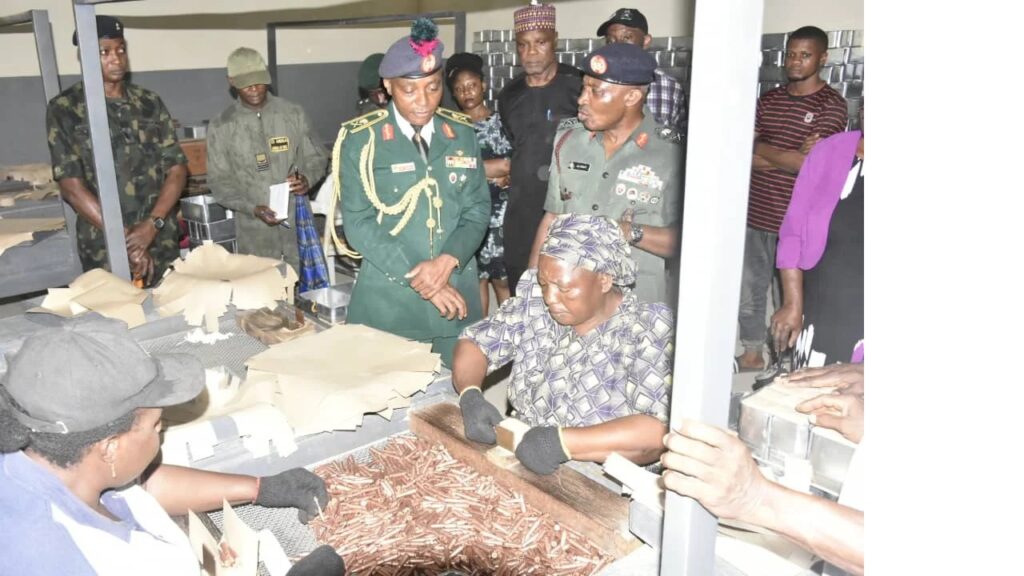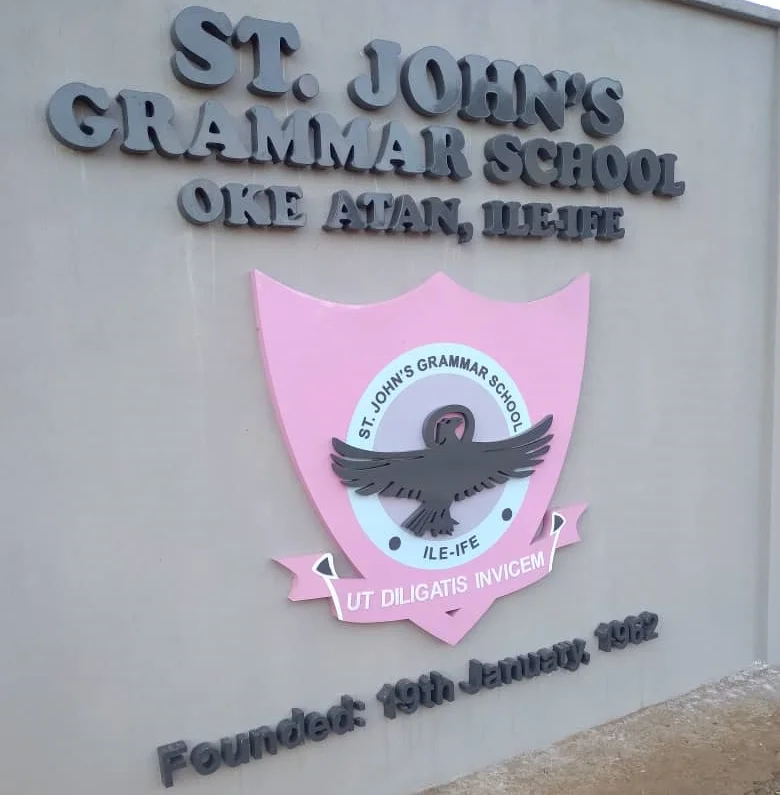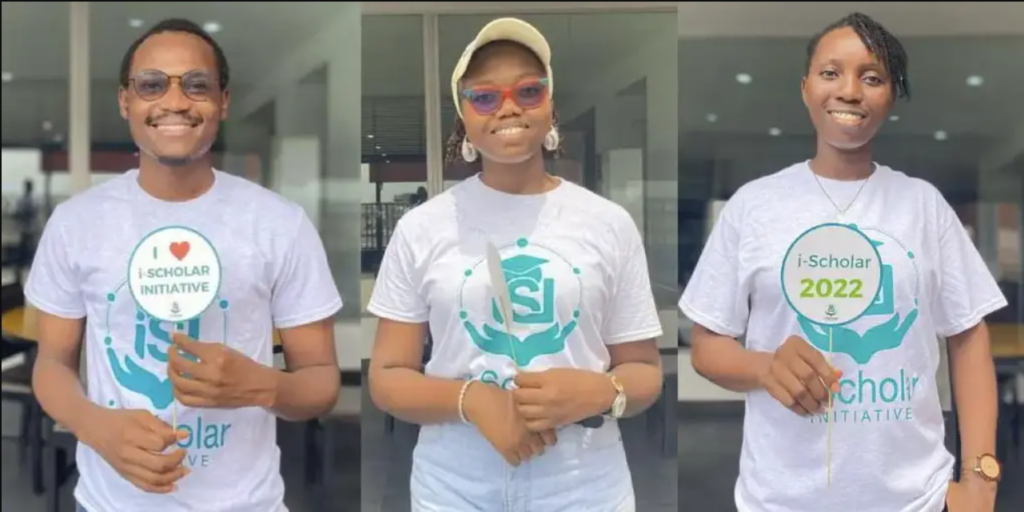[dailymotion code=”x81rif6″ autoplay=”yes”]
• ‘Twitter Inciting, Dividing Nigerians Using Xenophobic Messages’
• Presidency Orders Prosecution Of App Users, Says Suspension Temporary
• Ban Sends Poor Message To Citizens, Investors – US, UK, EU, Canada
• Editors Call For Caution
• Move Unbecoming Of Democratically Elected President – Soyinka
• Telecoms Companies Seek Speedy Resolution As Nigerians Devise Alternative Routes To Twitter
President Muhammadu Buhari administration’s growing insatiable thirst for undermining freedom of expression has exposed the country to national and international ridicule, especially with the suspension hammer slammed on Twitter on Friday.
The suspension order came two days after Twitter had removed what is considered offensive in President Buhari’s tweets in line with the social media company’s “abusive” behaviour policy.
Across the world, individuals, civil rights groups and governments have sided with the Nigerian people in condemning the government’s attempt to stifle free speech.
Indeed, the United States of America (US) Mission in Nigeria, specifically warned against any action that undermines Nigerians’ ability to exercise their freedom of expression.
In a statement, the Mission said: “Nigeria’s constitution provides for freedom of expression. The Government’s recent
#Twitterban undermines Nigerians ability to exercise this fundamental freedom and sends a poor message to its citizens, investors and businesses. Banning social media and curbing every citizen’s ability to seek, receive and impart information undermines fundamental freedoms. As President Joe Biden has stated, our need for individual expression, open public conversation, and accountability has never been greater. The path to a more secure Nigeria lies in more, not less communication, alongside concerted efforts toward unity, peace, and prosperity.”
Also, the diplomatic missions of Canada, the European Union (Delegation to Nigeria), the Republic of Ireland, and the United Kingdom, conveyed their disappointment over the suspension and proposing registration requirements for other social media.
“We strongly support the fundamental human right of free expression and access to information as a pillar of democracy in Nigeria as around the world, and these rights apply online as well as offline. Banning systems of expression is not the answer,” the statement read.
Similar rage was expressed by the Nobel laureate, Prof. Wole Soyinka, who said: “Heard the news of Buhari’s ban on Twitter an hour or so after sending off ‘To Shock And Awe’ to the print media. Kindly add my total lack of surprise at this petulant gesture, unbecoming of a democratically elected president. If Buhari has a problem with Twitter, he is advised to sort it out between them personally, the way Donald Trump did, not rope in the right to free expression of the Nigerian citizen as collateral damage. In any case, this is a technical problem Nigerians should be able to work their way around. The field of free expression remains wide open, free of any dictatorial spasms!”
On its part, the Nigerian Guild of Editors (NGE) urged the federal government to tread with caution and immediately reconsider the suspension of Twitter in Nigeria and seek other legitimate means of resolving its dispute with the company.
In a statement by its President, Mustapha Isah and General Secretary, Iyobosa Uwugiaren respectively, the NGE said that the federal government’s action has the unintended consequence of jeopardising the economic interests of many Nigerians who rely on the social media platform for vital information to make informed business decisions daily.
Advising the federal government to desist from any action that would project the Nigerian government as a dictatorship, the editors said the action is an infringement on Section 39 of the 1999 Constitution and violates the right of Nigerians to interact freely on this platform.
“In addition, the suspension is a grave breach of Nigeria’s international obligations under Article 9 of the African Charter on Human and Peoples’ Rights and Article 19 of the International Covenant on Civil and Political Rights.
“The Guild sees the federal government’s action as an overreaction to Twitter’s decision to delete President Muhammadu Buhari’s tweet early this week.
“If the federal government finds Twitter’s action against the President objectionable, Nigerians should not be made to suffer the collateral damage of denying them their right to free discourse on Twitter,’’ the Guild added.
The body noted that the federal government had in an initial reaction by the Minister of Information and Culture, Alhaji Lai Mohammed, condemned the deletion of President Buhari’s view as an unacceptable tab on the president’s right, saying this ought to have been a sufficient response.
“However, the ban at the weekend, of Twitter’s operation in Nigeria, is an overkill that gives wind to the sail of critics who daily accuse the Buhari administration of intolerance of opposing views.”
It, therefore, called on the government to immediately rescind its decision in order not to deny millions of Nigerians who rely on Twitter to provide services and earn a living.
But the Presidency, yesterday, explained that the federal government suspended Twitter from operating in the country because the platform had become notorious for the alleged spread of false religious, racist and xenophobic messages capable of inciting citizens against each other, leading to the loss of many lives.
This is just as it described the media giant’s decision to flag President Mohammadu Buhari’s tweet as “disappointing.”
The Senior Special Assistant on Media and Publicity to the President, Malam Garba Shehu, in a statement, explained that the temporary action against Twitter “is not just a response to the removal of the President’s post.
“There has been a litany of problems with the social media platform in Nigeria, where misinformation and fake news spread through it have had real-world violent consequences. All the while, the company has escaped accountability,” the statement stated, adding, “nevertheless, the removal of President Buhari’s tweet was disappointing. The censoring seemed based on a misunderstanding of the challenges Nigeria faces today.”
It continued: “The President in his address at the United Nations General Assembly (UNGA) in 2019 said, “the world was shocked and startled by the massacre in New Zealand, by a lone gunman taking the lives of 50 worshippers. This and similar crimes, which have been fueled by social media networks risk seeping into the fabric of an emerging digital culture.
“Major tech companies must be alive to their responsibilities. They cannot be allowed to continue to facilitate the spread of religious, racist, xenophobic and false messages capable of inciting whole communities against each other, leading to loss of many lives. This could tear some countries apart.
“President Buhari has therefore been warning against social media’s disruptive and divisive influences and the government’s action is not a knee-jerk reaction to Twitter’s preposterous deletion of his tweet, which should have been read in full. The tweet was not a threat, but a statement of fact.
“A terrorist organisation (IPOB),” the statement further alleged, “poses a significant threat to the safety and security of Nigerian citizens. When the President said that they would be treated ‘in a language they understand,’ he merely reiterated that their force shall be met with force. It is a basic principle of security services response the world over.
“This is not the promotion of hate, but a pledge to uphold citizens’ right to freedom from harm. The government cannot be expected to capitulate to terrorists. IPOB is proscribed under Nigerian law. Its members murder innocent Nigerians; they kill policemen and set government property on fire. Now, they have amassed a substantial stockpile of weapons and bombs across the country.
“Twitter does not seem to appreciate the national trauma of our country’s civil war. This government shall not allow a recurrence of that tragedy.”
Governor of Oyo State, Seyi Makinde, also decried the action, saying as leaders, there is a need to go beyond emotional reactions to issues and think about how the actions will affect the people, international ratings socially and economically.
Makinde’s statement reads in part: “Twitter has become the platform for young people and indeed all Nigerians to exercise their fundamental right to express and publish an opinion. They use the platform to complain, argue and give feedback to the government and its agencies that in turn, use these to improve policies. This is a fundamental point that should be kept in mind as we debate the necessity of this suspension.
“We should also remember that Twitter has gone beyond a source of communication for many of our hardworking youths in Nigeria. It has become a source of livelihood for many, irrespective of their political affiliations or religious leanings. Nigerian youths and digital communications organisations earn a living from being able to use the platform to post communications on behalf of their clients.
“Others who may not have physical stores also rely on Twitter to give visibility to their products and services. Furthermore, I believe the Federal Government should be actively interested in how certain policies and action will affect investor confidence. I, therefore, use this medium to appeal to the Federal Government to reverse this suspension for the greater good of Nigerians.”
Meanwhile, telecommunications companies have said that they are currently working closely with relevant stakeholders to ensure there is a speedy resolution of the current suspension of Twitter activities in Nigeria.
Under the aegis of Association of Telecommunications Companies of Nigeria (ATCON), the body said it is equally worried by the development.
The President of ATCON, Ikechukwu Nnamani, yesterday in Lagos, stated that while the Association and its member companies understand the position of the Federal Government and the reasons for the directive, and have complied with the directive, it is pertinent that the issue is resolved soon in the interest of all.
Nnamani emphasized that the Over-The-Top (OTT) platforms of which Twitter is one, is an integral part of the digital economy that the Federal Government is promoting, so when an unfortunate disagreement arises with respect to the user policies, it is good it is resolved in a timely manner.
The telcos, acting on a directive from the Nigerian Communications Commission (NCC), had blocked earlier assess to Twitter in Nigeria.
A sister body to ATCON, the Association of Licensed Telecoms Operators of Nigeria (ALTON), in a statement jointly signed by the Chairman and Executive Secretary, Gbenga Adebayo and Gbolahan Awonuga respectively, reads: “We, the Association of Licensed Telecommunication Operators of Nigeria (ALTON) wish to confirm that our members have received formal instructions from the Nigerian Communications Commission (NCC), the industry regulator to suspend access to Twitter.
“ALTON has conducted a robust assessment of the request in accordance with internationally accepted principles. Based on national interest provisions in the Nigerian Communications Act, 2003, and within the licence terms under which the industry operates; our members have acted in compliance with the directives of the Nigerian Communications Commission (NCC) the industry regulator.
“We will continue to engage all the relevant authorities and stakeholders and will act as may be further directed by the NCC. We remain committed to supporting the government of the Federal Republic of Nigeria and upholding the rights of citizens.
“As an industry, we endorse the position of the United Nations that the rights held by people offline must also be protected online. This includes respecting and protecting the rights of all people to communicate, to share information freely and responsibly, and to enjoy privacy and security regarding their data and their use of digital communications.”
In the wake of the reactions, the federal government made another move reinforcing the Twitter ban when the Attorney General of the Federation (AGF) and Minister of Justice, Abubakar Malami (SAN) yesterday directed immediate prosecution of offenders of the ban on Twitter operation in Nigeria.
Malami directed the Director of Public Prosecution of the Federation (DPPF) at the Office of the Attorney General of the Federation (AGF) and Minister of Justice, to swing into action and commence in earnest the process of prosecution of violators of the De-activation of operations of Twitter in Nigeria.
In a statement signed by Special Assistant on Media and Public Relations in the Office of the AGF and Minister of Justice, Dr. Umar Jibrilu Gwandu, Malami directed the DPPF to liaise with the Ministry of Communication and Digital Economy, National Communication Communication (NCC) and other relevant government agencies to ensure the speedy prosecution of offenders without any further delay.
Nigeria Coordinator, Alliance for Affordable Internet (A4AI), Olusola Teniola told journalists that from the look of things, it is very clear that the government is trying to regulate the Internet and social media.
“Unlike China, which is a communist country and has a central information system, this is not possible in Nigeria.
“In the case of Nigeria, it is very difficult to enforce because Twitter doesn’t have a physical office or presence in Nigeria. Their office is in Ghana. What obtains is that it is the local technology companies that provide access to their services which people access here. Even though the government is desirous of banning the activities of Twitter, it is powerless in this instance because there are several ways to access Twitter. I think the government decision would be weakened by the fact there are several other ways to bypass the ban and easily access their (Twitter) service. So there is really no cause for alarm. The digital world cannot be controlled, because it is a global platform,” Teniola stated.
While it has been disclosed that via VPN, Twitter can still be accessed, Nigerians have, however, been warned to be careful in order not to fall prey to cybercriminals.
A telecoms expert, Kehinde Aluko said though VPN is often used to bypass local Internet restrictions, which works by routing Internet traffic through a server that sits between user devices, phones, computers among others, and the Internet, it is also prone to hacking.
Aluko said it makes users appear to be connecting to the Internet from a location different from his geographical location, adding that with many premium VPN, one can actually choose your virtual location.
The warning, according to him, “is that not all VPN providers have good intentions. Since the server that sits between you and the Internet is receiving your information and routing it, the operators of the server may be able to see, store and use your information. A VPN is like asking someone to go to the ATM on your behalf. You not only need to hand over your card, you also need to hand over your pin.”
A civil organisation, Action Group on Free Civic Space, described the ban on Twitter as a brazen attack on free civil space in the country.
In a statement, yesterday, the body expressed shock and displeasure at the federal government’s decision to suspend operations of the microblogging platform.
The statement, signed by the Executive Director, Spaces for Change (S4C), Victoria Ibezim-Ohaeri; Executive Director, Rule of Law and Accountability Centre (RULAAC); the Amaka Chiwuike-Uba Foundation (ACUF) and 10 other civil society groups read: “This worrisome action not only constitutes a gross and reprehensible attack on the freedom of expression of millions of citizens, but also portends great danger for internet freedoms and the civic space in Nigeria.
“Buhari’s disposition towards civil liberties, including the current suspension, casts doubts on the claims that he is now a reformed democrat. No known democratic head of government that has been sanctioned by Twitter ever took this tyrannical route. At the height of his contestations with the mainstream and social media platforms, former United States President, Donald Trump, never suspended any social media group, let alone blocking their business operations in the country.”












